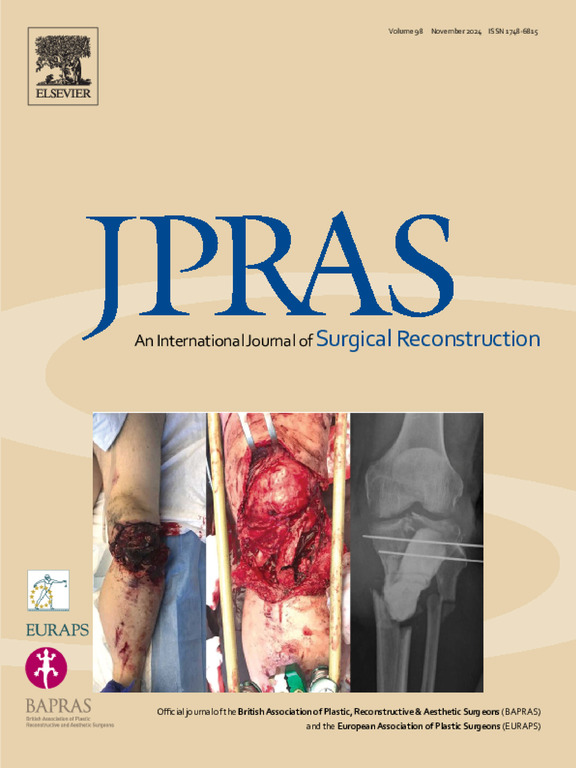联合学习:消除人工智能驱动的整形外科研究中的合作障碍。
IF 2.4
3区 医学
Q2 SURGERY
Journal of Plastic Reconstructive and Aesthetic Surgery
Pub Date : 2025-08-07
DOI:10.1016/j.bjps.2025.07.036
引用次数: 0
摘要
人工智能时代,整形外科研究面临根本性挑战;个别部门很少有足够的病例量来训练强大的机器学习模型,特别是对于专门的程序或罕见的并发症。这一限制限制了循证预测工具的发展,这些工具可以显著改善患者护理。联邦学习作为一种变革性的解决方案出现,为跨机构的协作模型开发提供了一个隐私保护框架,而无需集中数据共享。与需要数据池的传统多中心研究不同,联邦学习只在机构之间传输模型参数,从不传输原始患者信息,解决了大规模数据分析需求和严格隐私法规之间的紧张关系。最近的医疗保健应用程序显示出显著的改进,与单一机构方法相比,联邦模型显示出更好的性能和增强的通用性。在整形外科中,联邦学习可以增强对复杂重建手术(如游离皮瓣手术)的风险预测,通过具有全球代表性的模型对美学结果进行客观评估,并促进罕见并发症的监测,如乳房植入物相关的间变性大细胞淋巴瘤检测。实施需要关注数据标准化和技术基础设施,但由于患者数据从不离开机构边界,因此分布式特性实际上促进了对GDPR和HIPAA的法规遵从。联合学习与新兴技术的融合有望与手术计划软件集成,用于实时结果预测和精确医学方法。国际整形外科学会在协调特定专业的联合学习网络,建立治理结构和技术标准方面具有独特的优势。联合学习为整形外科提供了一个前所未有的机会,在保持患者隐私和机构自主权的同时,利用集体的全球经验,解决当前研究范式的基本限制,并使强大的预测模型的发展成为可能,这些模型将定义未来几年的循证实践。本文章由计算机程序翻译,如有差异,请以英文原文为准。
Federated learning: Removing barriers to collaboration in AI-driven plastic surgery research
Plastic surgery research faces a fundamental challenge in the era of artificial intelligence; individual departments rarely possess sufficient case volumes to train robust machine learning models, particularly for specialized procedures or rare complications. This limitation constrains the development of evidence-based predictive tools that could significantly improve patient care. Federated learning emerges as a transformative solution, offering a privacy-preserving framework for collaborative model development across institutions without centralized data sharing. Unlike traditional multicenter studies requiring data pooling, federated learning transmits only model parameters between institutions, never raw patient information, addressing the tension between large-scale data analysis needs and stringent privacy regulations. Recent healthcare applications demonstrate significant improvements, with federated models showing better performance and increased generalizability compared to single-institution approaches. In plastic surgery, federated learning could enhance risk prediction for complex reconstructive procedures like free flap surgery, enable objective assessment of aesthetic outcomes through globally representative models, and facilitate rare complication surveillance, such as breast implant-associated anaplastic large cell lymphoma detection. Implementation requires attention to data standardization and technical infrastructure, but the distributed nature actually facilitates regulatory compliance with GDPR and HIPAA since patient data never leaves institutional boundaries. The convergence of federated learning with emerging technologies promises integration with surgical planning software for real-time outcome prediction and precision medicine approaches. International plastic surgery societies are uniquely positioned to coordinate specialty-specific federated learning networks, establishing governance structures and technical standards. Federated learning offers plastic surgery an unprecedented opportunity to harness collective global experience while maintaining patient privacy and institutional autonomy, addressing fundamental limitations in current research paradigms and enabling the development of robust predictive models that will define evidence-based practice for years to come.
求助全文
通过发布文献求助,成功后即可免费获取论文全文。
去求助
来源期刊
CiteScore
3.10
自引率
11.10%
发文量
578
审稿时长
3.5 months
期刊介绍:
JPRAS An International Journal of Surgical Reconstruction is one of the world''s leading international journals, covering all the reconstructive and aesthetic aspects of plastic surgery.
The journal presents the latest surgical procedures with audit and outcome studies of new and established techniques in plastic surgery including: cleft lip and palate and other heads and neck surgery, hand surgery, lower limb trauma, burns, skin cancer, breast surgery and aesthetic surgery.

 求助内容:
求助内容: 应助结果提醒方式:
应助结果提醒方式:


